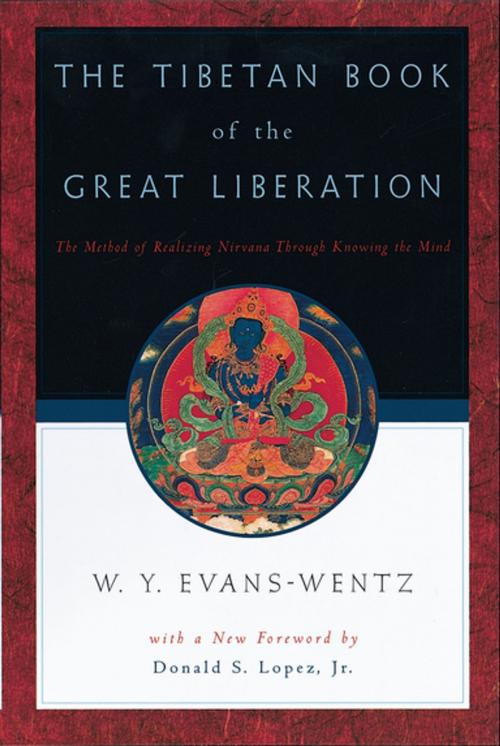The Tibetan Book of the Great Liberation : Or the Method of Realizing Nirvana through Knowing the Mind
Or the Method of Realizing Nirv=ana through Knowing the Mind
Nonfiction, Religion & Spirituality, Eastern Religions, Buddhism, Social & Cultural Studies, Social Science, Anthropology| Author: | W. Y. Evans-Wentz;C. G. Jung;Donald S. Lopez | ISBN: | 9780199840144 |
| Publisher: | Oxford University Press, USA | Publication: | July 28, 2000 |
| Imprint: | Oxford University Press, USA | Language: | English |
| Author: | W. Y. Evans-Wentz;C. G. Jung;Donald S. Lopez |
| ISBN: | 9780199840144 |
| Publisher: | Oxford University Press, USA |
| Publication: | July 28, 2000 |
| Imprint: | Oxford University Press, USA |
| Language: | English |
The Tibetan Book of the Great Liberation which was unknown to the Western world until its first publication in 1954 speaks to the quintessence of the Supreme Path or Mahayana and fully reveals the yogic method of attaining Enlightenment. Such attainment can happen as shown here by means of knowing the One Mind the cosmic All-Consciousness without recourse to the postures breathings and other techniques associated with the lower yogas. The original text for this volume belongs to the Bardo Thodol series of treatises concerning various ways of achieving transcendence a series that figures into the Tantric school of the Mahayana. Authorship of this particular volume is attributed to the legendary Padma-Sambhava who journeyed from India to Tibet in the 8th century as the story goes at the invitation of a Tibetan king. Padma-Sambhava's text per se is preceded by an account of the great guru's own life and secret doctrines. It is followed by the testamentary teachings of the Guru Phadampa Sangay which are meant to augment the thought of the other gurus discussed herein. Still more useful supplementary material will be found in the book's introductory remarks by its editor Evans-Wentz and by the eminent psychoanalyst C. G. Jung. The former presents a 100-page General Introduction that explains several key names and notions (such as Nirvana for starters) with the lucidity ease and sagacity that are this scholar's hallmark; the latter offers a Psychological Commentary that weighs the differences between Eastern and Western modes of thought before equating the "collective unconscious" with the Enlightened Mind of the Buddhist. As with the other three volumes in the late Evans-Wentz's critically acclaimed Tibetan series all four of which are being published by Oxford in new editions this book also features a new Foreword by Donald S. Lopez.
The Tibetan Book of the Great Liberation which was unknown to the Western world until its first publication in 1954 speaks to the quintessence of the Supreme Path or Mahayana and fully reveals the yogic method of attaining Enlightenment. Such attainment can happen as shown here by means of knowing the One Mind the cosmic All-Consciousness without recourse to the postures breathings and other techniques associated with the lower yogas. The original text for this volume belongs to the Bardo Thodol series of treatises concerning various ways of achieving transcendence a series that figures into the Tantric school of the Mahayana. Authorship of this particular volume is attributed to the legendary Padma-Sambhava who journeyed from India to Tibet in the 8th century as the story goes at the invitation of a Tibetan king. Padma-Sambhava's text per se is preceded by an account of the great guru's own life and secret doctrines. It is followed by the testamentary teachings of the Guru Phadampa Sangay which are meant to augment the thought of the other gurus discussed herein. Still more useful supplementary material will be found in the book's introductory remarks by its editor Evans-Wentz and by the eminent psychoanalyst C. G. Jung. The former presents a 100-page General Introduction that explains several key names and notions (such as Nirvana for starters) with the lucidity ease and sagacity that are this scholar's hallmark; the latter offers a Psychological Commentary that weighs the differences between Eastern and Western modes of thought before equating the "collective unconscious" with the Enlightened Mind of the Buddhist. As with the other three volumes in the late Evans-Wentz's critically acclaimed Tibetan series all four of which are being published by Oxford in new editions this book also features a new Foreword by Donald S. Lopez.















